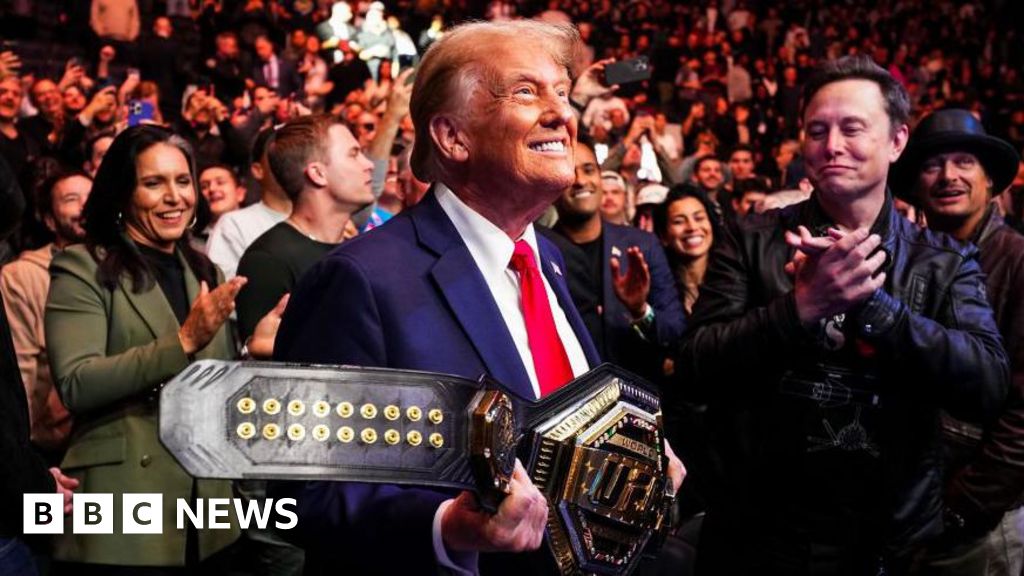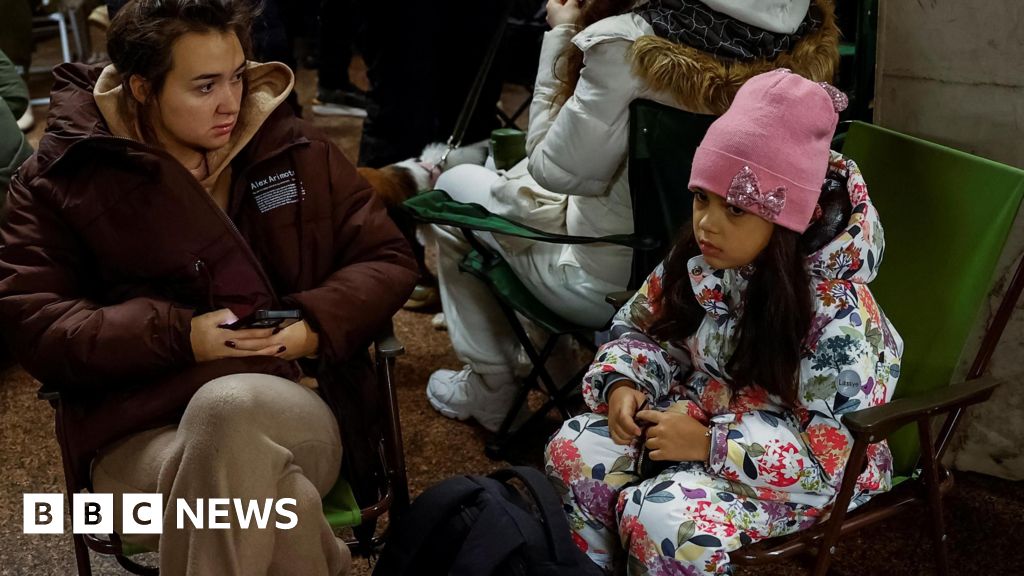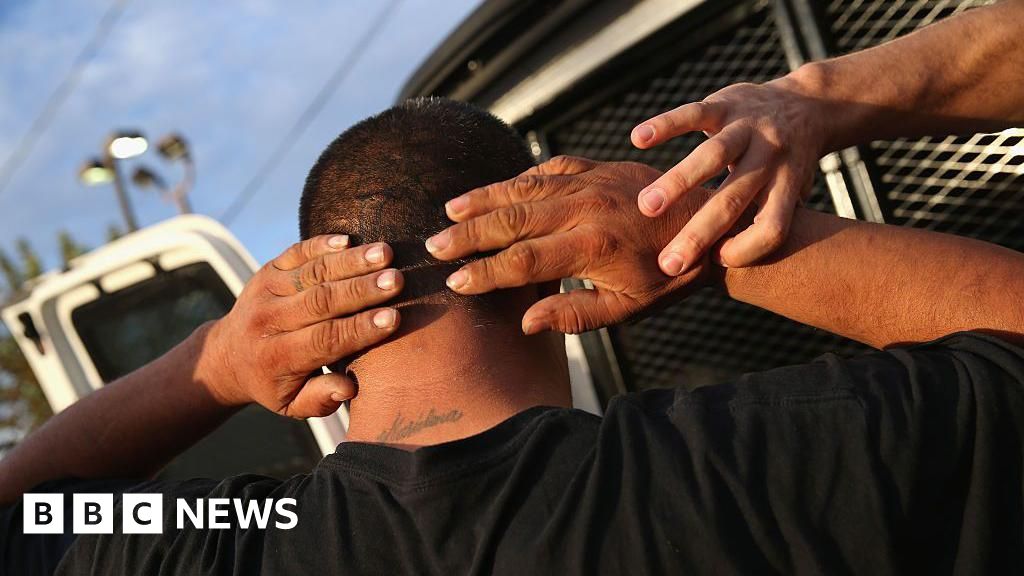ARTICLE AD BOX
Image source, Reuters
Image caption,Kyiv residents have been escaping the Russian bombardment in basements and underground shelters
On day six of the Russian invasion, Ukrainians woke up to the wailing sound of air sirens and news of Russian troops progressing towards the capital Kyiv.
Satellite images showed a serpentine armoured convoy, stretching across 65km (40 miles), inching towards the city.
Our chief international correspondent Lyse Doucet started her day in a basement shelter, where she met Rustam, who like many 13-year-olds was scrolling through Tik-Tok videos.
Later in the day, five people died when Russia attacked a TV tower in Kyiv, Ukrainian officials say. The attack came soon after Russia warned it was preparing to hit targets in the Ukrainian capital.
Watch: The moment Kyiv TV tower was struck by a Russian missile
A missile reportedly struck the Babyn Yar Holocaust Memorial Centre which is close by.
It is built on Europe's largest mass grave, where Nazi death squads killed more than 33,000 Jewish people in 1941.
You can see more maps showing what we know of the day's developments here: Day 6: Tracking Russia's invasion in maps
Horror in Kharkhiv
Missiles also hit government offices in Ukraine's second city Kharkiv, killing at least 10 people.
It prompted an accusation from Ukrainian President Volodymyr Zelinsky that Russia was committing war crimes, as there were no military targets in the area.
Residents have been fleeing the city and telling their stories.
One of our reporters in Ukraine, Joel Gunter, spoke to Alexandra, a hairdresser who left with her young son.
She said she hopes to return, echoing the sentiment of many Ukrainians by saying "I have never felt so much love for my homeland and for my city".
Image source, Reuters
Image caption,Rescuers dig through rubble after shelling of the state administration office in Kharkiv
No prospect of no fly-zone
Watch: Ukrainian woman breaks down in tears during question to UK PM
"The Ukrainian people are desperately asking for the West to protect our sky. We are asking for a no-fly zone."
This was the impassioned request from a Ukrainian woman who confronted UK Prime Minister Boris Johnson at a news conference on Tuesday.
But despite Russian strikes hitting residential areas of Ukraine, and a mounting civilian death toll, there is little chance that the West will implement a no-fly zone.
Oligarch criticises sanctions on oligarchs
One of Russia's richest men has said imposing sanctions on oligarchs would have no impact on Moscow's decision to launch a war in Ukraine.
Ukraine-born billionaire banker Mikhail Fridman told a press conference in London the war was a tragedy for both sides.
But he stopped short of direct criticism, saying personal remarks could be a risk not just to himself but also staff and colleagues.
The risks of Putin's miscalculations
By the BBC's John Simpson
Ukraine has fought back much harder during the first week than Vladimir Putin expected, or very probably than his generals promised him, it would. But these are still the early stages of what could be a very nasty war.
Putin must have hoped that a few days after Russian forces invaded, Kyiv would have fallen. And he surely expected that Western countries, cowed and divided, would have accepted that he had reclaimed a territory that he says is historically part of Russia.
None of this has happened. Ukraine has proved a hard nut to crack, and the reaction of Western countries, particularly Germany, has been far fiercer than he thought. Russia's economy has already been savagely hit. Putin's one big friend, China, now seems worried that this Western upsurge of anger might, one day, be turned against China itself - and that serious damage could be done to the Chinese economy. It has already distanced itself from the invasion.
Now Putin will have to reach for new options. He has always refused to back down when he is rebuffed. He will hit back harder - and he has the weapons to do it.
Read more from John Simpson here
Dealing with anxiety
You may be reading this far from the war zone. But if you see the news each day and feeling increasingly worried, you are not alone.
After a two-year pandemic which already raised anxiety levels and stress for many people, news of a war is lot to absorb, and experts agree that feeling overwhelmed is normal.
Here is their advice on how you can take care of yourself, your kids - and others.

 2 years ago
20
2 years ago
20








 English (US)
English (US)